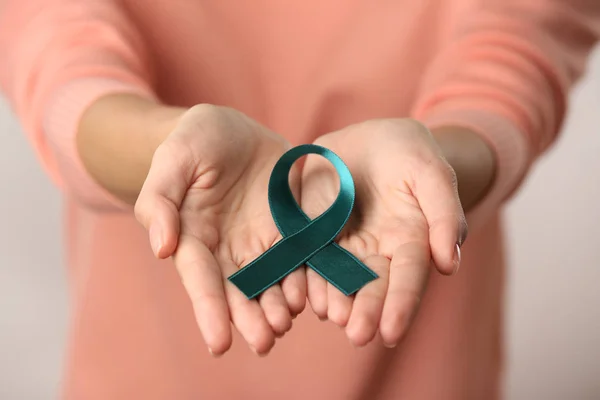Ovarian cancer is often called a “silent killer” because its symptoms can be subtle, easily mistaken for less serious health issues. This misconception contributes to late diagnoses, which significantly affects treatment outcomes. However, according to doctors, symptoms frequently present from the beginning—they are simply overlooked or misattributed. Understanding what ovarian cancer is, recognizing its signs, knowing when to seek medical advice, and being aware of treatment options empower women to take charge of their health.

What Is Ovarian Cancer? A Clear Understanding
Ovarian cancer originates in the ovaries, the small, almond-shaped organs responsible for producing eggs and hormones like estrogen and progesterone. It primarily affects women over 50 but can occur at any age, particularly in those with family history or genetic predispositions such as BRCA1 and BRCA2 mutations. The disease can develop from several types of cells within the ovary, including epithelial cells (the most common), germ cells, and stromal cells.
This type of cancer is challenging because early stages often show no obvious signs. As the tumor grows, cancer cells may spread to other parts of the abdomen or pelvis. According to the American Cancer Society, approximately 1 in 78 women will be diagnosed with ovarian cancer during her lifetime, and sadly, it is the fifth leading cause of cancer death among women due to late detection.
Ovarian Cancer Symptoms Women Need to Know
Symptoms of ovarian cancer tend to be vague and can easily mimic common health issues like indigestion or urinary tract infections. Despite this, many women do experience symptoms relatively early, but because they are subtle and intermittent, they might not seek help right away. It’s critical to pay attention if these signs persist for more than a few weeks or worsen over time.
Key symptoms include:
- Persistent bloating or abdominal swelling: Unlike normal bloating, ovarian cancer-related bloating does not go away and may gradually increase.
- Pelvic or abdominal pain: This pain is often described as dull or cramping and can affect everyday activities.
- Feeling full quickly when eating: This is known as early satiety and can lead to unintentional weight loss.
- Urinary changes: Such as urgency or frequency without infection.
- Fatigue: Constant, unexplained tiredness can be a subtle but important sign.
- Back pain: Pain in the lower back that does not have an obvious cause.
- Changes in bowel habits: Such as constipation or diarrhea.
Women should be alert to the pattern and persistence of these symptoms. As Dr. Jane Morgan, a gynecologic oncologist, notes from her clinical experience, “Patients often tell me they had symptoms for weeks or months but didn’t realize their importance, which delays diagnosis.”
What to Do If You Have Symptoms of Ovarian Cancer
If you experience any combination of symptoms that feel unusual or persistent, it’s crucial to consult a healthcare professional promptly. Early consultation can lead to earlier diagnosis and significantly improve treatment outcomes.
When seeing your doctor:
- Describe the duration and severity: Explain how long you’ve had the symptoms and if they’re getting worse.
- Mention family history: Inform your doctor if close relatives have had ovarian cancer or related cancers like breast cancer.
- Request specific tests: These may include pelvic examinations, transvaginal ultrasounds, and blood tests such as the CA-125 marker, which can indicate ovarian cancer but is not definitive on its own.
Persistent symptoms, even in the absence of positive tests, should not be ignored. If necessary, ask for a referral to a specialist for further evaluation.
How Ovarian Cancer Is Treated: Options and Prognosis
Treatment for ovarian cancer depends on the stage and type of cancer, overall health, and patient preferences. The primary approaches include:
- Surgery: Often the first step, aiming to remove as much of the tumor as possible, including the ovaries, fallopian tubes, uterus, and nearby lymph nodes when needed.
- Chemotherapy: Used either before surgery to shrink tumors or afterward to eliminate remaining cancer cells, typically involving platinum-based drugs.
- Targeted therapy: Newer treatments focus on specific genetic mutations or pathways involved in ovarian cancer, such as PARP inhibitors for BRCA-mutated cancers.
- Radiation: Less common but sometimes used in specific cases.
Recent advances have improved five-year survival rates for ovarian cancer, which was around 47% according to the National Cancer Institute’s data. Early-stage diagnosis can raise this figure dramatically, reinforcing the importance of recognizing symptoms early.
The Importance of Follow-Up and Support
Survivorship care includes regular screenings and symptom monitoring because ovarian cancer can recur. Many patients benefit from counseling, nutritional support, and physical rehabilitation to maintain quality of life. “It’s only a silent killer if we aren’t listening,” says Mitchell Clark, MD, a gynecologic oncologist for Yale Cancer Center.
Ovarian cancer’s reputation as a silent disease is due more to symptom misrecognition than absence. Women equipped with knowledge about what ovarian cancer is, its symptoms, and what actions to take if they notice warning signs stand a better chance of early diagnosis and effective treatment. By prioritizing their health and seeking timely consultation, many can improve their outlook in this often misunderstood disease.
Also Read | Blood in Stool Colors Explained: What You Need to Know









